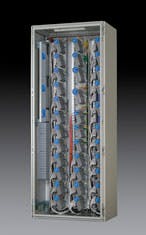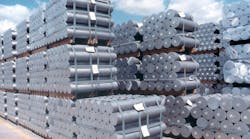On the other hand, globalization can make the lead automation-supplier role in energy infrastructure projects increasingly complex.
But based on what it has in hand at the moment, you’d have to say Honeywell Process Solutions has capabilities to support large, technologically advanced projects anywhere in the world, and in the demanding oil & gas and energy industries.
For example, PetroChina Company Limited will expand its use of Honeywell advanced information management and process-modeling software tools to 17 additional refining and petrochemical sites across China. PetroChina already uses Honeywell information solutions at 13 locations, the supplier says.
Also recently, Asia Trans Gas selected Honeywell’s Experion process knowledge system (PKS) and Safety Manager technology to manage operations and help prevent safety problems in the Central Asia-China Gas Pipeline (CACGP) project.
Model as media
An issue systematically addressed by industrial software developers over the last two decades is use of statistical or other type process models to anticipate plant production challenges and opportunities. Another is how to bring to bear in industrial decision-making increasingly available up-to-the-minute information — whether petroleum-based feedstock prices or finished-product demand.
Honeywell’s refining and petrochemical modeling system (RPMS) and its Intuition Executive software are evidence of the significant progress that has been made.
"Refiners and chemical plant operators make complex business decisions quickly to take advantage of rapidly changing market conditions," said Aldous Wong, VP and general manager, Honeywell Process Solutions, China. "Implementing Honeywell solutions across more locations will help PetroChina maximize profitability through better visibility and efficiency."
PetroChina, the country’s largest oil and gas producer and distributor, first deployed RPMS at its headquarters in Beijing, and 12 refineries and petrochemical facilities in 2005. The expansion project will extend its use to cover all its refining and petrochemical businesses.
Central Asia-China Gas project
Asia Trans Gas says Experion process knowledge system (PKS) and Safety Manager technology already is in use in the first two pipelines of the project, which are already in operation. Asia Trans Gas is a joint venture of China National Petroleum Corp. (CNPC) and Uzbekistan national holding company UzbekNefteGas.
Such a system would presumably hold most current procedures and specifications relative to the pipeline’s highly regulated operation.
"Pipelines present unique challenges because their length makes them more difficult for operators to monitor and respond to problems, but an integrated approach provides unparalleled visibility into their operations," said Wong.
Honeywell’s Experion PKS will be the main integration and control software platform for the 530-kilometer pipeline. By integrating Honeywell’s Safety Manager software into the overall system, Experion will be better prepared for emergency shutdowns, equipment protection, fire and gas monitoring, and critical control.
"Natural gas from Central Asia plays an important role in providing cleaner energy for China and we expect user demand to grow eight percent per year," said Li Lin, general manager, Asia Trans Gas.
The third pipeline in the CACGP network, named Line C, will run in parallel with the existing twin pipelines, Lines A and B. The pipelines start in Turkmenistan and cut across Uzbekistan and Kazakhstan before reaching China’s western Xinjiang province. The A and B lines were completed in 2009. The existing main control center (MCC), which currently controls lines A and B, will be upgraded.



